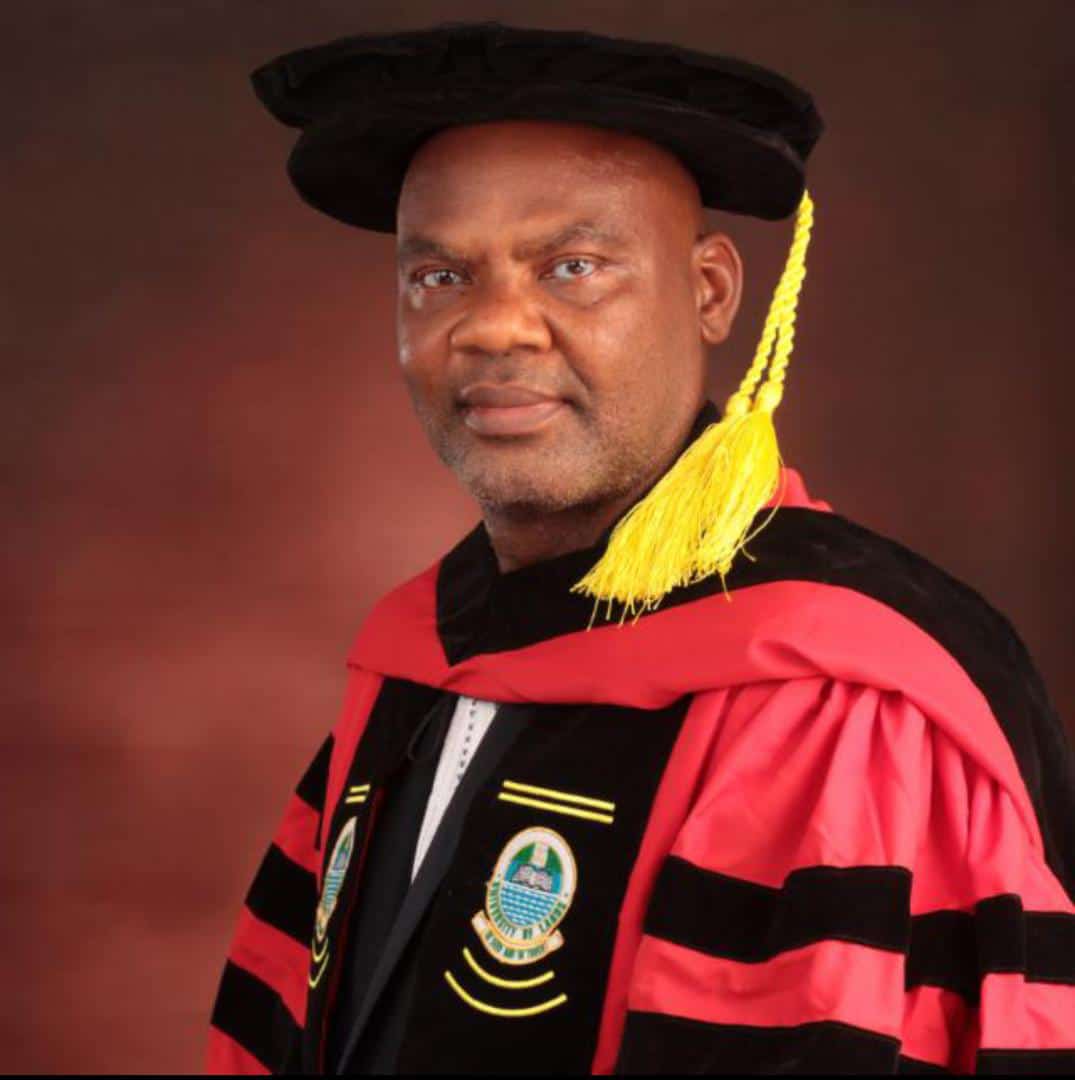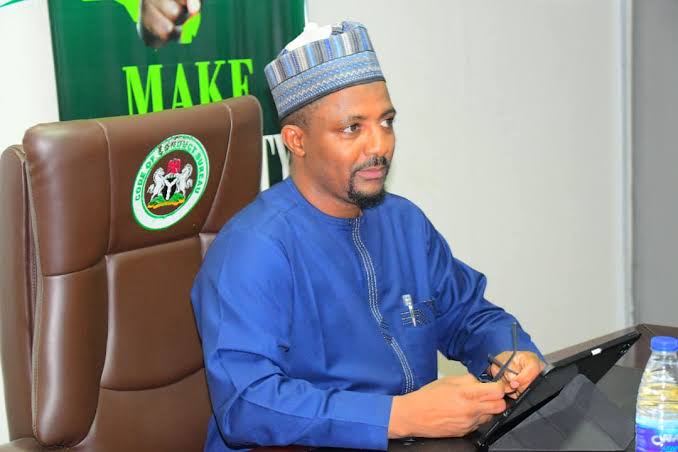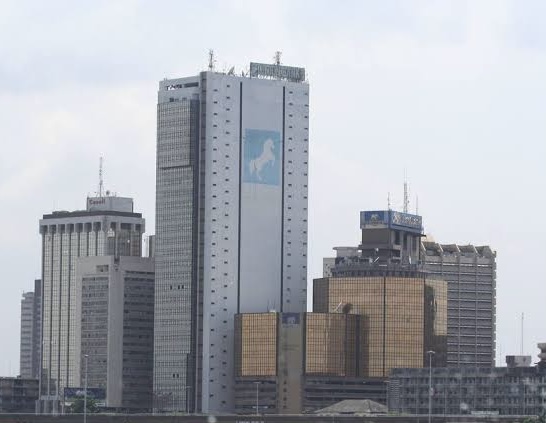
“Please, tell us your name and what you do.”
My name is Professor Chris Obisi, Professor of Human Resource Management and Development at the University of Lagos. I am also Professor of Organisational Transformation at the same university.
You can call me the Human Resource Development Missionary, because I believe that for every HR personnel to succeed, he or she must work with a missionary spirit.
How can HR practitioners ensure workplace policies support fairness, merit, and national development?
Charity begins at home. In most companies across Nigeria and Africa, HR practice is overly dependent on foreign models rather than local realities.
Take training, performance management, and recruitment. Recruitment must be based strictly on merit. Performance assessment must also be rooted in merit—nothing else.
I recall an example from 1997 when Christopher Kolade was Managing Director of Cadbury. The Head of HR, who was my MBA student at the University of Lagos, shared an experience with me. After a recruitment exercise, Kolade looked at the shortlist and remarked that while the recommended candidate was good, others were better. He then told the HR Head: “You are the head of HR. Based on the values of this organisation, the buck stops on your table.”
Even the MD could not override the recruitment decision. That is what we need in Nigeria—nobody should be above the law.
If HR practitioners adhere to organisational values, regardless of pressure or influence, there will be continuous progress. The biggest mistake organisations make is ignoring the fact that the quality of their people determines success. Recruit on the basis of tribalism, favouritism, or godfatherism, and the organisation will suffer.
What steps should employers and policymakers take to ensure Nigeria’s workforce remains globally competitive while rooted in local realities?
The tragedy of Nigeria is poorly thought-out policies. Whether at government or organisational level, policies must be strategic, inclusive, and adaptive.
Before a policy is enacted, all stakeholders must be consulted. Their input should shape the final outcome. That is the only way policies can be sustainable. Sadly, we often hear unions complain that they were not carried along. That should not happen.
Employment policies are a particular problem. Many are outdated, but instead of reviewing them, policymakers cling to rigid, dogmatic positions. Conditions change, and so policies must evolve. Without this, organisations and the nation will keep lagging behind.
So, is it safe to say Nigeria’s labour policies do not adequately reflect our cultural values?
Yes, absolutely. Most of our labour policies are colonial relics that we are still implementing.
Take the “No Work, No Pay” policy. It is unjust as currently applied. If an agreement between management and workers is dishonoured, and workers strike because management failed in its obligations, why punish them with no pay? That is not their fault.
“No Work, No Pay” should only apply when workers strike without just cause after management has fulfilled its side of the bargain. Otherwise, it is like beating a child and expecting them not to cry. With such outdated policies, Nigeria cannot move forward.
You are spearheading a major intellectual project that seeks to preserve and promote homegrown ideas for economic and political transformation. What inspired you and your team to take up this project?
I am President of the Institute of Development and Business Culture (IDBC), founded in 2011. In collaboration with four associations—the Institute of Entrepreneurs, the Institute of Development and Political Nigeria, the Institute of Business Culture, and NECA—we agreed to create homegrown solutions for Nigeria’s challenges.
This birthed a two-book initiative:
We have already engaged the National Assembly and the National Orientation Agency, both of which strongly endorsed the project. The books will be produced in hard copy, e-book, and documentary formats.
Why is it important for Nigerians to focus on local ideas rather than foreign models?
We need a complete change of mindset. Foreign prescriptions have failed us. With our vast human and natural resources, why are we still poor?
Take the IMF and World Bank policies of the 1980s. They led to the devaluation of the Naira and turned Nigeria into a dumping ground. Since then, we have relied excessively on imports—even for toothpicks.
We must look inward. Build infrastructure, provide electricity, water, and roads. Support local businesses with soft loans. Promote local products—from clothing to vehicles. Yet our leaders spend millions importing Prado Jeeps, instead of patronising local manufacturers like Innoson Motors or NORD. That money should be going into health, education, and infrastructure.
Above all, Nigeria needs to change its philosophy of life. Right now, it is rooted in greed. We must embrace simple living and high thinking. Only then can we cut costs, promote local productivity, and transform our economy.
What role do you see HR practitioners playing in transferring the ideas from these books into workplace policies?
HR is the custodian of values in the workplace. Once these ideas are documented, HR professionals must translate them into policies and organisational culture.
Again, recruitment and performance evaluation must be strictly merit-based. HR practitioners must enforce standards consistently, without bending to external influence.
If HR experts make these values non-negotiable, organisations will thrive, governance will improve, and Nigeria’s workforce will become globally competitive while remaining firmly rooted in local realities.
About Professor Chris Obisi: He is fondly called the “Human Resource Development Missionary”, is a Professor of Human Resource Management and Development at the University of Lagos. He is also President of the Institute of Development and Political Nigeria and the Institute of Business Culture and Human Capital Preservation Nigeria.
A First-Class graduate of Political Science from the University of Poona, India, he earned his PhD in Human Resource Development in 1993. In 2023, he made history by developing the Perpetual Excellence Theory of Human Resource Management—the first sustainable HRM theory by an African—which reaffirms human resource as the most vital factor of production and positions technology as an enabler, not a threat.
A prolific author and mentor, Professor Obisi has published extensively and supervised numerous doctoral theses. Currently, he leads two landmark projects with NECA and the Institute of Entrepreneurs:
In this wide-ranging conversation, Professor Obisi speaks on the urgent need for HR practitioners in Nigeria to adopt people-centred, locally relevant practices. He also discusses his new initiative to document Nigeria’s business and political ideas as a way of preserving intellectual heritage and shaping future development












